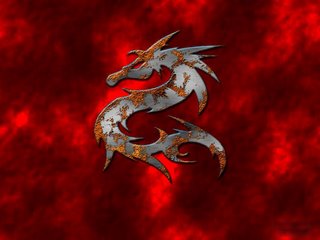china dragon




Dragon occupies a very important postion in Chinese mythology. It shows up in arts, literature, poetry, architecture, songs, and many aspects of the Chinese conscience. The origin of Chinese dragons is unknown, but centainly pre-dates the written history.
The Chinese Dragon, or Lung , symbolizes power and excellence, valiancy and boldness, heroism and perseverance, nobility and divinity. A dragon overcomes obstacles until success is his. He is energetic, decisive, optimistic, intelligent and ambitious. Unlike the the negative energies associated with Western Dragons, most Eastern Dragons are beautiful, friendly, and wise. They are the angels of the Orient. Instead of being hated, they are loved and worshipped. Temples and shrines have been built to honor them, for they control the rain, rivers, lakes, and seas. Many Chinese cities have pagodas where people used to burn incense and pray to dragons. The Black Dragon Pool Chapel, near Peking, was reserved for the Empress and her court. Special worship services took place there on the first and fifteenth of every month. Dragon shrines and altars can still be seen in many parts of the Far East. They are usually along seashores and riverbanks, because most Eastern Dragons live in water. The Isle of the Temple, in Japan's Inland Sea, has become a famous stopover for pilgrims who meditate and pray to dragons. Both male and female dragons have mated with humans. Their descendants became great rulers. The Japanese Emperor Hirohito traced his ancestry back 125 generations to Princess Fruitful Jewel, daughter of a Dragon King of the Sea. Emperors in many Asian countries claimed to have dragon ancestors. This made them so proud, that everthing they used was decorated with dragons and described in terms of the dragon: dragon-throne, dragon-robe, dragon-bed, dragon-boat. Calling an emperor "dragon-face" was a supreme compliment. People believed that rulers could change themselves into dragons. For hundreds of years, Japanese emperors sat concealed behind bamboo curtains whenever visitors came. Anyone who dared to peek was condemned to death. Everything connected with Eastern Dragons is blessed. The Year of the Dragon which takes place ever twelve years, is lucky. Present-day Oriental astrologers claim that children born during Dragon Years enjoy health, wealth, and long life. (1964 and 1976 were Dragon Years.)




0 Comments:
Post a Comment
<< Home